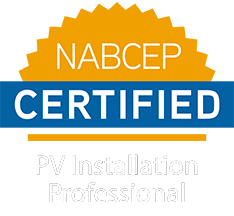How to Live a Little “Greener”

Our world is plagued by environmental issues like climatic changes, greenhouse effect and pollution.
The solution starts with us.
Choosing to live greener could help tackle many of these global issues. If you want to make your life a little bit more sustainable, there are a couple of easy things you can do.
We’ve listed eco-friendly habits to help keep the earth clean and green:
-
Change the Lightbulbs
According to Department of Energy, an average household allocates about 5% of its energy budget to lighting. A simple way of making your home a little greener is replacing your old light fixtures with energy-efficient bulbs. Traditional incandescent bulbs use a lot of energy to produce light. Newer energy-saving light bulbs like LEDs and compact fluorescent lamps (CFLs) use 25 to 80 percent less energy. When you make the switch, you can also save $75 each year!
-
Use Green Cleaning Products
Notice how conventional cleaning products have the words “Warning!”, “Flammable!”, and “Toxic!” written on their labels? It’s because they contain carcinogens, toxins, and other harmful ingredients. These chemicals are being released into the environment, polluting air and waterways. All-natural cleaning products are safer for your health, pets, and home!
-
Check for Water Leaks
The U.S. Environmental Protection Agency reveals that household leaks can waste nearly 1 trillion gallons of water per year. Common leaks in homes are caused by dripping faucets, misbehaving sprinkler systems, worn toilet flappers, and other leaking valves. Fixing these issues not only help in conserving water but also save homeowners up to 10 percent on their water bill. Hire a plumber if necessary!
-
Use Rechargeable Batteries
Americans throw away about 180,000 tons of batteries. Over 86,000 tons of these are single use alkaline batteries. Sealed inside alkaline cells are corrosive acids and heavy metals. These harmful toxins can leach into the waterway. Batteries can also explode and release toxic fumes into the air. Using rechargeable batteries is better for the environment—plus, you’ll contribute less waste and save money.
-
Insulate windows, Doors and Walls
Leaks in doorways, windows and exterior wall outlets result in more drafts which waste energy and money. Cracks and openings also lead to moisture problems that can harm your health. Improve seals by caulking and weatherstripping doors and windows that leak air. Install foam gaskets behind outlet and switch plates on walls. This will help cut back on wasted energy.
-
Grow Indoor Plants
There is a growing body of scientific evidence indicating that indoor air is more polluted than outdoor air. Poor indoor air quality has been linked to a number of respiratory conditions like asthma. Placing multiple live plants throughout your home can help absorb pollutants and increase oxygen. Apart from their natural air-purifying abilities, plants also reduce stress and can make you feel more at ease.
-
Adjust Temperature of Your Refrigerator
The refrigerator and freezer consume the highest amount of energy among household appliances. To avoid wasted energy, make sure to use it efficiently. The recommended temperatures are 35°-38°F for the fresh food compartment and 0° F for separate freezers. The refrigerator door seals should be airtight, and don’t leave the doors open for more than a few seconds.
-
Clean Air Conditioner Filters
Dirty and clogged air filters could lead to poor air conditioning performance and increased energy usage. To ensure efficiency, the most important maintenance task is to replace or clean the filters every three months. Doing so can lower energy consumption by 5% to 15%. Consider purchasing reusable filters as they’re more Eco-friendly.
-
Install Programmable Thermostat
Heating and cooling is the largest energy expense for most U.S. households. It makes up for more than half of the energy use of a home. To conserve energy, use a programmable thermostat. It can save you as much as 10% a year on heating and cooling costs. In the winter, set the thermostat to 68°F when you're awake and lower it while you're asleep. In the summer, set it to 78°F only when you are at home.
-
Unplug Electronics
Some appliances are “energy vampires.” They continue to draw power from outlets even when turned off. Your microwave, coffee maker, DVRs, set-top cable boxes, laptops and PCs are some examples. All these add more than 10% to your monthly utility bill. Make sure to unplug all devices you aren’t using. Using a power strip is highly recommended.
These changes may be fairly small, but if we do it together, we can make the planet a better place. There are plenty of other efforts you can make such as recycling, ditching plastic bags, or using cloth napkins. If you want to take a bigger step, switch to renewable power like solar. It’s the answer to reducing carbon footprint and greenhouse gases around the globe.



